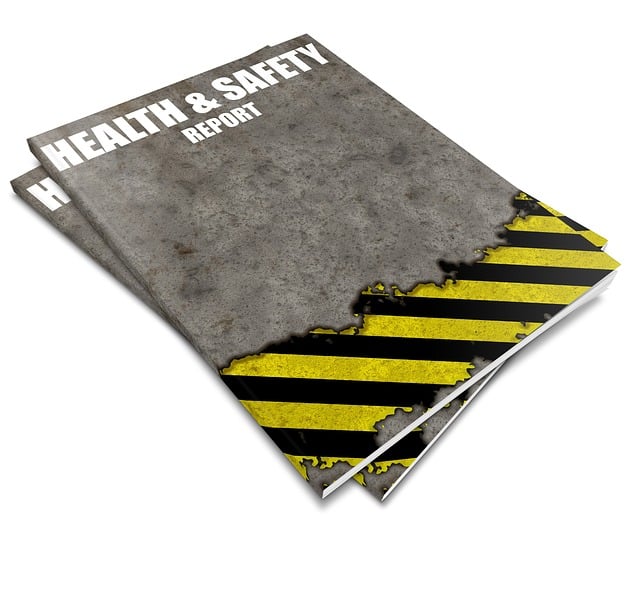Employers increasingly rely on comprehensive background checks as a critical component of their recruitment process. These checks go beyond basic qualifications to verify identity, employment history, education, criminal records (if applicable), and even credit scores, ensuring candidates align with company culture, protect sensitive information, and prevent legal issues. This is especially crucial for roles involving trust and sensitive data, aiding in long-term success and fostering a secure workplace environment. Best practices include fairness, accuracy, legality, and transparency while balancing check relevance to job roles and upholding ethical standards.
In today’s world, employers increasingly rely on background checks as a crucial part of their recruitment process. Understanding the purpose and types of these checks is essential for navigating the complexities of modern hiring. This article delves into the common types of background checks used by employers, their impact on hiring decisions, best practices for conducting them, legal considerations, and the ethical implications of employing this strategy. By exploring these aspects, job seekers and professionals alike can grasp the importance of background checks in recruitment.
- Understanding the Purpose of Background Checks in Recruitment
- Common Types of Checks Used by Employers
- The Impact of Checks on Hiring Decisions
- Best Practices for Conducting and Utilizing Background Checks
- Legal Considerations and Importance of Ethical Screening
Understanding the Purpose of Background Checks in Recruitment

Background checks play a pivotal role in modern recruitment processes. These thorough investigations go beyond verifying basic qualifications and experience, delving into an applicant’s history to ensure they are a suitable fit for the role and company culture. By employing background checks, employers can make informed hiring decisions, mitigating risks associated with untested candidates. This proactive approach is crucial, as it helps protect sensitive company information, prevents potential legal issues, and ensures the safety of employees and clients.
In today’s world, where data breaches and identity theft are prevalent concerns, background checks offer a critical layer of protection. They verify an individual’s identity, employment history, education, and sometimes even their criminal record (if applicable). This process allows employers to assess character, honesty, and reliability, which are essential factors in successful long-term employment. The importance of these checks cannot be overstated, especially for roles that handle sensitive data or have direct interactions with clients.
Common Types of Checks Used by Employers

In today’s world, employers use background checks as a crucial component of their recruitment process. These checks play a pivotal role in making informed hiring decisions and ensuring a safe working environment. Common types include criminal records checks, which screen for any prior convictions or pending charges, helping employers gauge an applicant’s trustworthiness. Additionally, employment verification involves confirming previous work history and references, providing insights into the candidate’s reliability and performance.
Educational and credential verifications are also essential checks in recruitment. These verify diplomas, degrees, and professional certifications, ensuring candidates meet the required qualifications. Furthermore, some employers conduct credit checks to assess financial responsibility, especially for roles involving access to sensitive information or funds. The importance of these background checks cannot be overstated; they help protect employers from legal liabilities, mitigate risks, and ultimately contribute to a healthier and more productive workplace culture.
The Impact of Checks on Hiring Decisions

Background checks play a pivotal role in shaping hiring decisions for employers. These thorough evaluations go beyond what’s presented on a resume, delving into an applicant’s past to uncover potential red flags or remarkable achievements. By employing background checks, employers can gain valuable insights into candidates’ honesty, work history, and overall suitability for the role. This process is especially crucial in roles that require trust, security, or direct interaction with sensitive information.
The impact of these checks extends beyond individual hiring; they are a critical component of an effective recruitment strategy. They help employers make informed choices, reducing the risk of hiring mistakes. A robust background check system can identify qualified candidates who align perfectly with the job requirements, ensuring a successful integration into the company culture. In today’s world, where reputation and trust are paramount, background checks serve as a safeguard for both employees and employers, fostering a more secure and productive work environment.
Best Practices for Conducting and Utilizing Background Checks

When conducting and utilizing background checks, employers should adhere to best practices that ensure fairness, accuracy, and legality. This includes obtaining proper consent from candidates, verifying the authenticity of the provided information, and using reputable third-party services for check creation and delivery. Transparency is key; candidates should be informed about the types of checks being performed and the purpose behind them. Employers must also respect privacy laws, such as the Fair Credit Reporting Act (FCRA) in the U.S., which dictates how employment screening information can be used and disclosed.
Incorporating background checks into the recruitment process is vital for making informed hiring decisions. They help employers uncover critical information about a candidate’s history, including prior employment, education, and legal records. However, these checks should complement, not define, an individual’s potential. Employers must consider the nature of the role when deciding which types of checks to conduct, ensuring that the inquiries are relevant and proportionate. By following best practices, employers can maximize the benefits of background checks while upholding ethical standards in their recruitment efforts.
Legal Considerations and Importance of Ethical Screening

When employing new staff, background checks have become an integral part of the recruitment process for most employers. These checks go beyond simply verifying academic qualifications and previous employment. They encompass a range of verifications that help employers make informed hiring decisions and mitigate potential risks associated with unethical or dishonest candidates. The use of background checks in recruitment (checks in recruitment) is not only about ensuring compliance with legal requirements but also upholding the ethical standards of the organization.
The importance of checks in hiring cannot be overstated, especially given the increasing sophistication of identity fraud and the potential impact of bad hires on company reputation and finances. Legal considerations demand that employers conduct thorough background investigations, often including criminal record checks, to avoid discrimination lawsuits. Additionally, ethical screening plays a crucial role in fostering a safe and inclusive work environment. Employers must ensure their screening processes adhere to fair practices, respect privacy rights, and are based on relevant information that directly relates to the job at hand.
